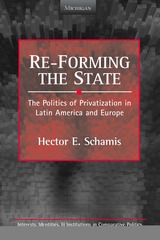
Like the canaries that alerted miners to a poisonous atmosphere, issues of race point to underlying problems in society that ultimately affect everyone, not just minorities. Addressing these issues is essential. Ignoring racial differences--race blindness--has failed. Focusing on individual achievement has diverted us from tackling pervasive inequalities. Now, in a powerful and challenging book, Lani Guinier and Gerald Torres propose a radical new way to confront race in the twenty-first century.
Given the complex relationship between race and power in America, engaging race means engaging standard winner-take-all hierarchies of power as well. Terming their concept "political race," Guinier and Torres call for the building of grass-roots, cross-racial coalitions to remake those structures of power by fostering public participation in politics and reforming the process of democracy. Their illuminating and moving stories of political race in action include the coalition of Hispanic and black leaders who devised the Texas Ten Percent Plan to establish equitable state college admissions criteria, and the struggle of black workers in North Carolina for fair working conditions that drew on the strength and won the support of the entire local community.
The aim of political race is not merely to remedy racial injustices, but to create truly participatory democracy, where people of all races feel empowered to effect changes that will improve conditions for everyone. In a book that is ultimately not only aspirational but inspirational, Guinier and Torres envision a social justice movement that could transform the nature of democracy in America.

The experience of privatization shows that the public and the private are neither contradictory nor mutually exclusive spheres, and that power relations between them are not necessarily zero-sum. To stress the point, the author borrows from the literature on state formation, which has extensively examined the historical processes of key private groups. The evidence presented shows why and how, by restructuring coalitional and institutional arenas, the state uses marketization to generate political order and to distribute political power. Thus, the author specifies the conditions under which political change is conceived in terms of and channeled through economic policy; in other words, how the state is "re-formed" through privatization. Re-forming the State thus highlights how privatization is simultaneously a movement from public to private, but also a movement from non-state to state, as the reduction of state assets leads to institutional changes that increase state capacities for defining and enforcing property rights, extracting revenue, and centralizing administrative and political resources.
Hector E. Schamis is Assistant Professor of Government, Cornell University.
READERS
Browse our collection.
PUBLISHERS
See BiblioVault's publisher services.
STUDENT SERVICES
Files for college accessibility offices.
UChicago Accessibility Resources
home | accessibility | search | about | contact us
BiblioVault ® 2001 - 2024
The University of Chicago Press









